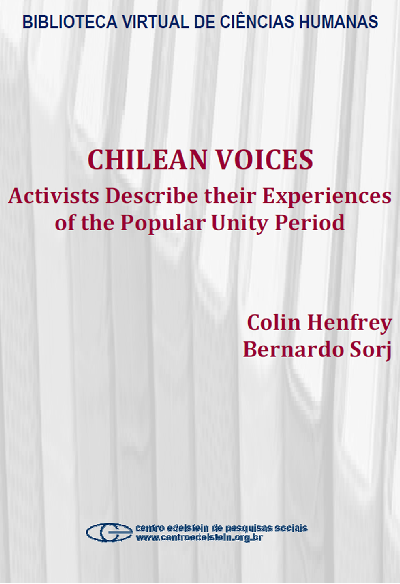
Chilean Voices
- Ciências Sociais, História, Livros Em Inglês
- 11 Visualizações
- Nenhum Comentário

Link Quebrado?
Caso o link não esteja funcionando comente abaixo e tentaremos localizar um novo link para este livro.

Few foreigners knew much about Chile when, in September 1970, a Marxist president was elected. Yet the next three years were to make it a stage on which the world watched the re-enactment of almost all the classic problems of achieving socialism.
In the last, bloody act, the name of Chile would be scored, like Spain’s, across the minds of a generation.Caso o link não esteja funcionando comente abaixo e tentaremos localizar um novo link para este livro.

Caso o link não esteja funcionando comente abaixo e tentaremos localizar um novo link para este livro.